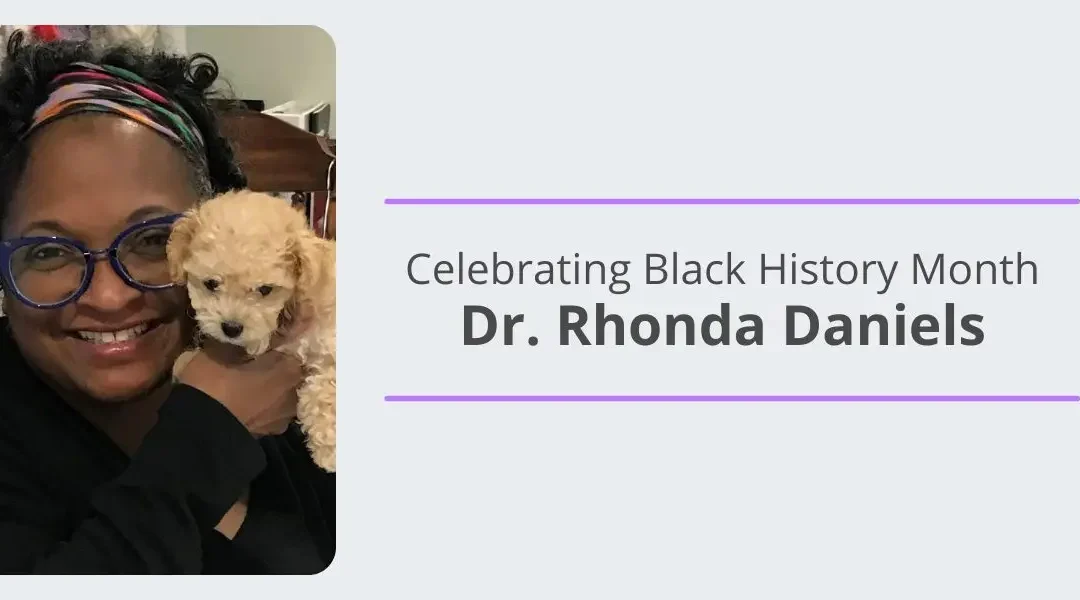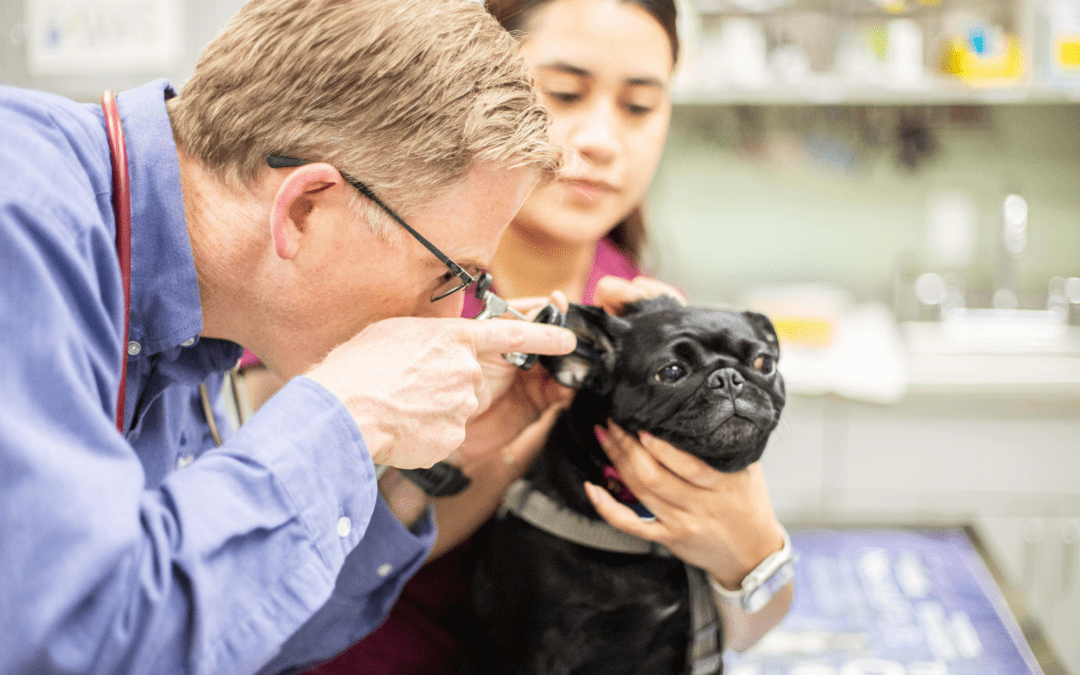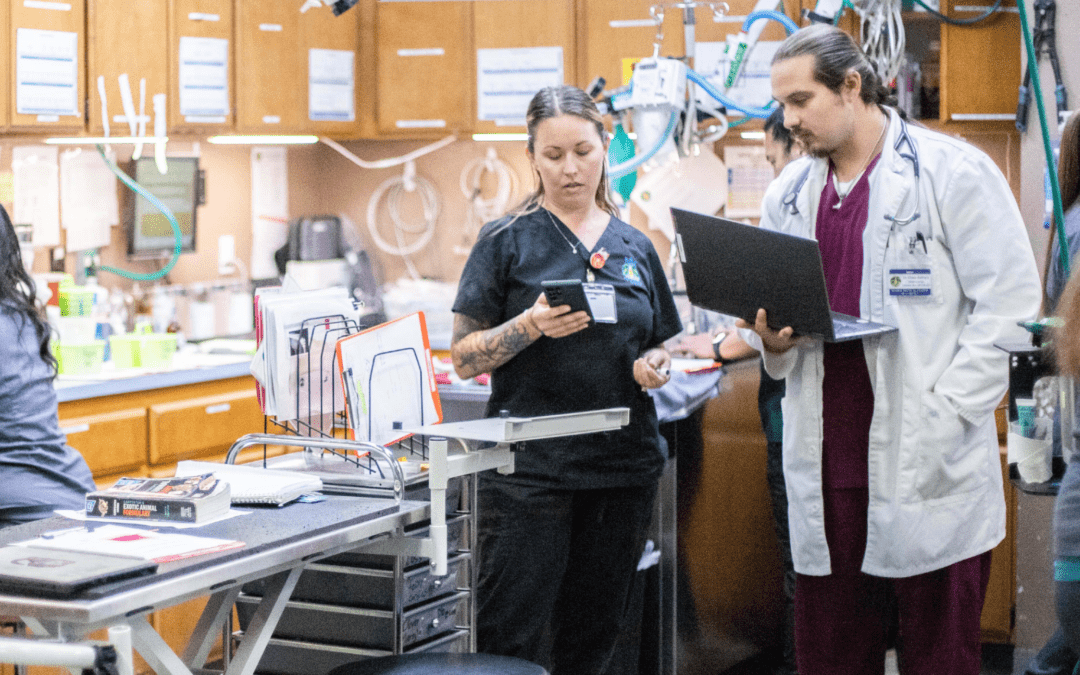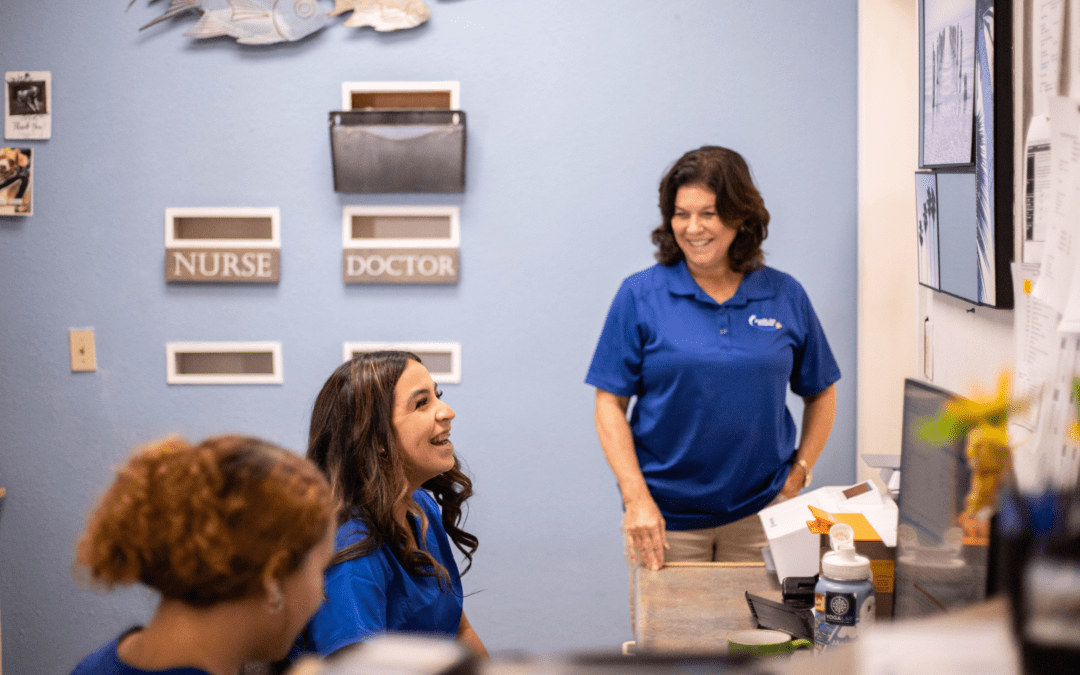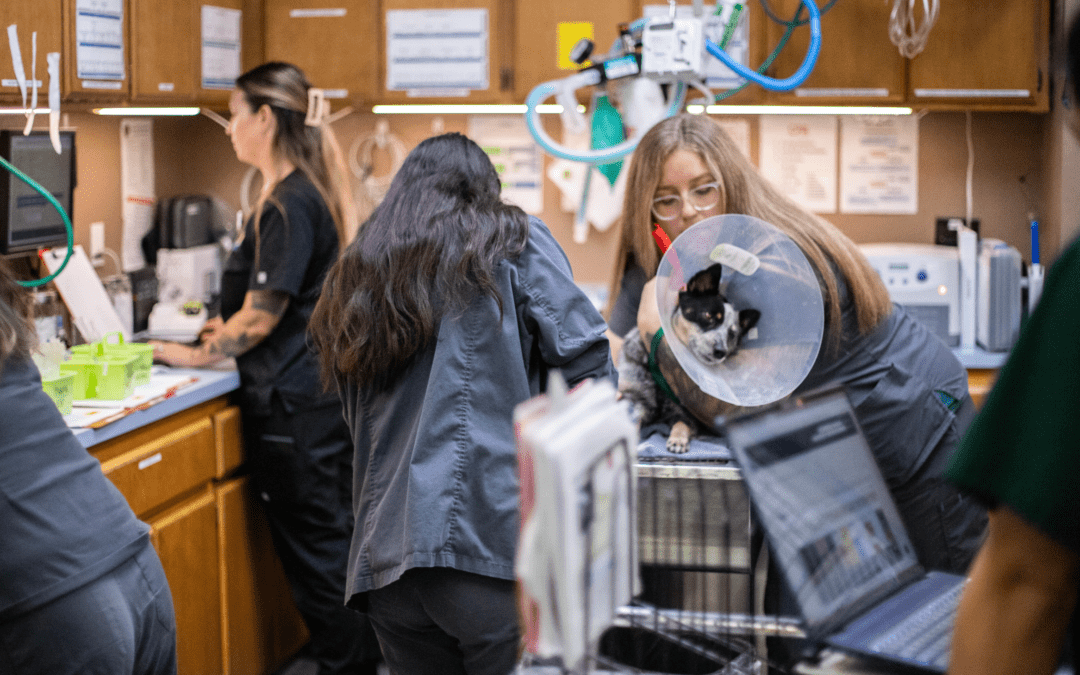Her husband, Dr. Egeenee Daniels, is also a graduate of LSU School of Veterinary Medicine, class of 1986. He is the Director of Laboratory Animal Medicine and Attending Veterinarian at the University of North Texas Health Science Center in Fort Worth. The Daniels have two children, AJ and Endrea. Dr. Daniels and her family live on a ranch in southwest Tarrant county where they raise cattle and horses. She has pet cats and chickens.
She and her family are members of First Baptist Church Benbrook. Dr. Daniels is a familiar face in the Benbrook community as a supporter of local businesses, and she looks forward to meeting new families and their pets. Dr. Daniels believes client education and preventative medicine are the keys to longevity for all of our pets.At PetDesk, the I.D.E.A. (Inclusion, Diversity, Equity, and Allyship) group is an employee-organized alliance and safe space for discussion and action around inequalities influencing our country, our industry, and ourselves.
In February, we’re excited to celebrate Black History Month by learning more about Black professionals in the veterinary community to highlight their stories and discuss what Black History Month means to them.
The theme for Black History Month 2021 is The Black Family: Representation, Identity, and Diversity.
Meet Dr. Rhonda Daniels
Dr. Rhonda Daniels is a 1990 graduate of Louisiana State University School of Veterinary Medicine (Geaux Tigers!). She has been a practicing veterinarian in the Benbrook/Fort Worth community for more than 25 years. Dr. Daniels’ passion for her clients and patients prompted her to open her own practice in Benbrook in June of 2011.
Her husband, Dr. Egeenee Daniels, is also a graduate of LSU School of Veterinary Medicine, class of 1986. He is the Director of Laboratory Animal Medicine and Attending Veterinarian at the University of North Texas Health Science Center in Fort Worth. The Daniels have two children, AJ and Endrea. Dr. Daniels and her family live on a ranch in southwest Tarrant county where they raise cattle and horses. She has pet cats and chickens.
She and her family are members of First Baptist Church Benbrook. Dr. Daniels is a familiar face in the Benbrook community as a supporter of local businesses, and she looks forward to meeting new families and their pets. Dr. Daniels believes client education and preventative medicine are the keys to longevity for all of our pets. This interview has been edited for clarity and brevity.
PetDesk:
Where do you call home?
Dr. Daniels:
Home for me now is Benbrook, Texas. It’s actually a little bit south of Benbrook in a little community called Whiskey Flats. My family and I live on a small ranch.
I’m originally from Louisiana. I was born and raised in Shreveport, attended Southern University in Shreveport, and graduated from Louisiana State University School of Veterinary Medicine in Baton Rouge, Louisiana.
PetDesk:
Did your race or background shape your experience growing up?
Dr. Daniels:
Definitely. I was blessed to grow up in a Christian home where I had both parents and raised with three siblings. My parents worked very hard to provide for us. Education was stressed. We were all taught that when you get your education, you will always have it and no one can take that away.
Strong faith and a strong work ethic were the mainstays of our family. My parents also stressed for me to always be the best that I could be. Therefore, I wouldn’t be judged by the color of my skin, but my ability. This helped me realize how important diversity is and that I would always strive to live and learn in a diverse world. From that point, I knew that diversity was going to be what I would look for in my world, and I wanted to raise my kids with that in mind.
PetDesk:
Do you mind speaking to how your experience with diversity influenced your values?
Dr. Daniels:
Growing up, I did not experience the diversity of other races. My first vivid memories of diversity came with the opening of Caddo Parish Magnet High School. Once I got to high school, I learned about many different cultures. We had a really good mixture of students from all cultures there. I feel like if you’re limited in one group consistently, you tend not to be able to learn more or expand your horizons.
Sometimes when you surround yourself with like-minded people they mean well, but if they have not chosen to experience diversity, they tend to be one-sided. And if you’re not careful, you can go down that path. Therefore, I chose to learn as much as I could from everyone around me.
PetDesk:
Are there any notable figures in Black history that inspired or influenced you growing up?
Dr. Daniels:
The first and foremost figure was Martin Luther King, Jr.
I really treasure and admire him because of his non-violent approach, his preaching of being the best that you can be, and always striving to get the most out of your situation.
Another figure that I think about is Harriet Tubman. She wanted so much more out of life, and she wanted so much more for her people because she knew that there was more to life than just being enslaved.
Another notable figure was my mother. She was very instrumental in shaping my academics and my outlook on life. My father was there also, but my mom was an educator, so I learned so much from her — how to speak, how to carry yourself, and how to always be courteous, kind, and treat everybody the same.
PetDesk:
How can we build an ideal world for the next generation?
Dr. Daniels:
I love this question because, when I was in high school, we read several books about ideal communities and ideal worlds. Unfortunately, I don’t feel that we are in that time right now, and I think it will be a very long time coming. I don’t think I will see that in my life.
The ideal world would be unity. We’ve all got to understand that we are all the same. As different as we are, we’re all the same. I have friends from many different backgrounds. I’ll tell them a story from my childhood and they say, ‘The same thing happened to me!’ Same situation, just in a different house. A lot of the ideals and experiences are so similar.
PetDesk:
It feels like having those experiences when you were younger, having exposure to different types of people and different types of cultures, instilled such a sense of empathy and humanity.
Dr. Daniels:
Lots of those experiences growing up, and being in the community that I grew up in, meaning I can be more empathetic about things that happen, not just in the African American communities, but in all communities. As I stated earlier, unity is the key, and being able to relate to others is crucial in this journey.
PetDesk:
You mentioned your mother influenced and encouraged you. As a mother yourself, how did your career as a veterinary professional affect or shape your children?
Dr. Daniels:
As a professional woman, I always explain to my son and daughter the difference between being in a professional career or a trade and just getting by. What I tried to instill in them was that whatever you do, I need you to be your best.
As a professional woman, there are many things that are going to be expected of me, so my expectations for them were the same. I’ve never expected them to follow in my footsteps, however, we would always tell them, ‘we expect you to do something where you will be a contributing member to society and not a burden on society.’
PetDesk:
Speaking of education and the veterinary industry, what advice do you have for students in the veterinary industry who want to be like you?
Dr. Daniels:
The first thing that I would advise kids is to get a mentor, a positive mentor. You need to have more than one. And you need to have mentors that are going to encourage you not just in your academics, but also in your everyday life.
The next thing is to glean as much knowledge as you can from them. Don’t be so quick to say, ‘Oh, I know, I know.’ Listen to what they say. A big part of veterinary medicine is listening because our patients can’t speak to us, so we have to listen to the client. But we also have to be observant of everything that’s going on around. You can learn so much just by listening.
PetDesk:
How important are diversity and inclusion to you, and what value do they bring to the workplace?
Dr. Daniels:
Diversity and inclusion are very important. When we have diversity we can learn from everyone around us; from every aspect of their experience, their lifestyle, their careers, and how they grew up. That’s why I encourage diversity. In the veterinary world, it still tends to be not as diverse as I would hope.
If you can learn from others, and you can glean those experiences, I think you can do a whole lot better in life.
PetDesk:
What about Black History Month? What does Black History Month mean to you personally?
Dr. Daniels:
I think about this frequently. It started off as Negro History Week in 1926, and now it’s Black History Month. I want to use Black History Month to learn more about those lesser-known African Americans who have contributed but who we never hear about. There are certain African Americans in Black History Month you always hear about, but there are so many more who’ve contributed. That’s one of the things that I try to do.
It’s also a good time of reflection on what our ancestors have achieved. One question I got the other day from one of my staff members, which I thought was really interesting, was, “Why are we open on Martin Luther King Day?” I said, “Well, for one, I couldn’t own this practice, this business, if it wasn’t for him. He paved the way for so many things.” So many people use it for just another day off, and I don’t want it for that. Therefore, I choose to stay open.
PetDesk:
Last question! Any advice you can give the I.D.E.A. team at PetDesk?
Dr. Daniels:
My biggest piece of advice would be to capture as many diverse cultures as you can and bring that into your workplace. Bring that to the forefront so that everyone can learn what happens in different cultures in the veterinary world. Try to make it a year-round thing, not just something you do because it’s Black History Month.
See the power of PetDesk for yourself—for free
Save time and grow your business with custom websites and digital marketing, 24/7 error-free booking, a PIMS-VoIP phone system, plus a client engagement platform with a mobile app.

